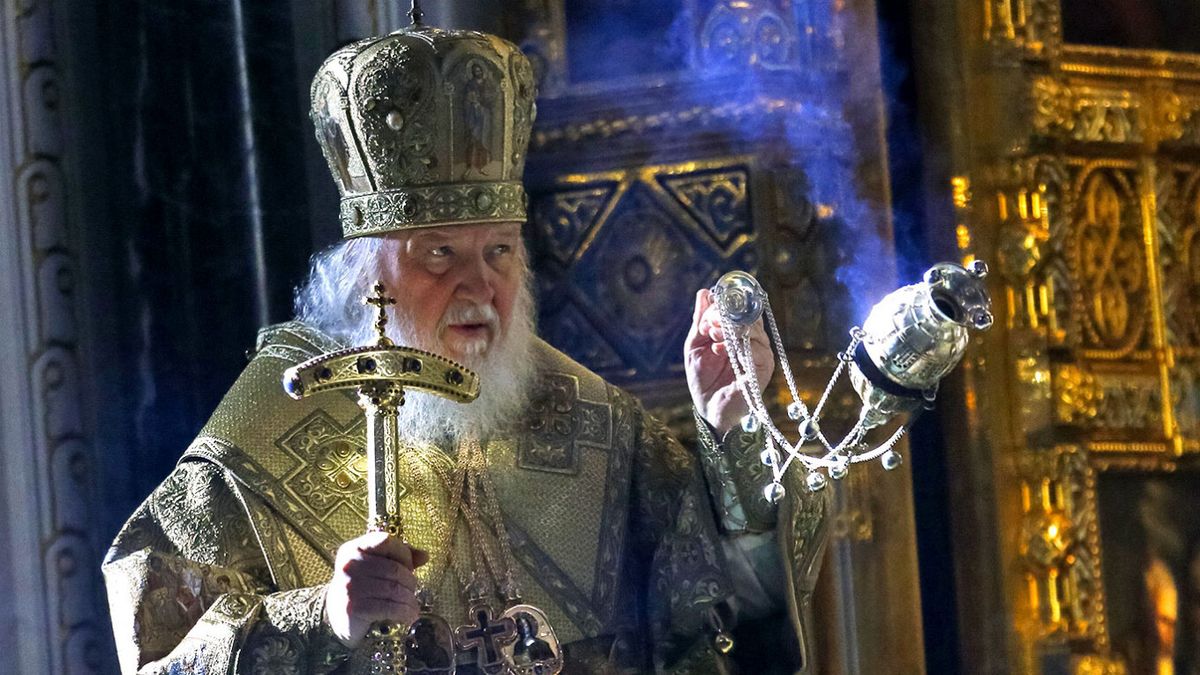
Orthodox Christianity is one of the oldest branches of Christianity, with rich traditions and unique practices. Did you know that it emphasizes the continuity of the original Christian faith and practices? This ancient faith has a fascinating history, filled with beautiful rituals, stunning architecture, and deep spiritual teachings. From the significance of icons to the celebration of Pascha (Easter), Orthodox Christianity offers a unique perspective on the Christian faith. Whether you're curious about its origins, its differences from other Christian denominations, or its vibrant cultural expressions, this article will provide you with 31 intriguing facts about Orthodox Christianity. Let's dive in and explore the essence of this ancient and enduring faith.
Key Takeaways:
- Orthodox Christianity has a rich history dating back to the Byzantine Empire, with unique beliefs, festivals, and art. It continues to evolve while maintaining ancient traditions.
- The structure of the Orthodox Church is distinct and hierarchical, with a global presence and ongoing dialogue with other Christian denominations for unity and understanding.
Origins and History
Orthodox Christianity boasts a rich history dating back to the early days of Christianity. Here are some fascinating facts about its origins and development.
- Orthodox Christianity originated in the Eastern Roman Empire, also known as Byzantium.
- The Great Schism of 1054 split Christianity into Eastern Orthodoxy and Roman Catholicism.
- Constantinople (modern-day Istanbul) was the heart of the Eastern Orthodox Church.
- The Nicene Creed, a statement of faith, was established in 325 AD and is still used in Orthodox liturgy.
- Saints Cyril and Methodius are credited with creating the Glagolitic alphabet, which influenced the Cyrillic script used in many Orthodox countries.
Beliefs and Practices
Orthodox Christianity has unique beliefs and practices that set it apart from other Christian denominations.
- Holy Tradition is considered equal to the Bible in guiding the faith.
- The Divine Liturgy is the central worship service, similar to the Catholic Mass.
- Icons play a significant role in worship and are considered windows to the divine.
- Fasting is a common practice, with strict fasts during Lent and other periods.
- Theosis, or becoming one with God, is the ultimate goal of an Orthodox Christian.
Church Structure and Hierarchy
The structure of the Orthodox Church is distinct and hierarchical, with various levels of clergy and authority.
- The Ecumenical Patriarch of Constantinople is considered the "first among equals" among Orthodox bishops.
- Autocephalous Churches are self-governing churches within Orthodoxy, like the Russian and Greek Orthodox Churches.
- Bishops oversee dioceses and are considered successors to the Apostles.
- Priests serve local parishes and administer sacraments.
- Deacons assist priests and bishops in liturgical services.
Festivals and Holy Days
Orthodox Christianity celebrates numerous festivals and holy days, many of which are unique to the faith.
- Pascha (Easter) is the most important feast, celebrating the resurrection of Jesus Christ.
- Christmas is celebrated on January 7th by many Orthodox Christians, following the Julian calendar.
- Theophany, on January 6th, commemorates the baptism of Jesus.
- Pentecost marks the descent of the Holy Spirit on the Apostles.
- Dormition of the Theotokos celebrates the Virgin Mary's assumption into heaven.
Art and Architecture
Orthodox Christianity has a rich tradition of art and architecture, reflecting its spiritual and cultural heritage.
- Byzantine architecture features domes, mosaics, and elaborate iconostasis.
- Hagia Sophia in Istanbul is one of the most famous examples of Byzantine architecture.
- Icons are often painted using the ancient technique of egg tempera on wood.
- Frescoes adorn many Orthodox churches, depicting biblical scenes and saints.
- Cross-in-square is a common church layout, symbolizing the intersection of heaven and earth.
Global Presence
Orthodox Christianity has a significant global presence, with millions of adherents worldwide.
- Russia has the largest population of Orthodox Christians, with over 100 million followers.
- Mount Athos in Greece is a monastic community and spiritual center for Orthodox Christians.
- Ethiopian Orthodox Church is one of the oldest Christian communities, dating back to the 4th century.
- Serbian Orthodox Church has a rich history and cultural influence in the Balkans.
- Antiochian Orthodox Church is based in the Middle East and has a significant diaspora in North America.
Modern Developments
Orthodox Christianity continues to evolve and adapt to the modern world while maintaining its ancient traditions.
- Ecumenical dialogue with other Christian denominations aims to foster unity and understanding.
Orthodox Christianity's Rich Tapestry
Orthodox Christianity, with its deep history and vibrant traditions, offers a fascinating glimpse into a faith that has shaped cultures and communities for centuries. From its roots in the early Christian church to its unique liturgical practices, this branch of Christianity stands out with its rich heritage. The use of icons, the significance of the Divine Liturgy, and the celebration of Pascha highlight the distinctiveness of Orthodox worship. Understanding these aspects not only enriches one's knowledge of the faith but also fosters appreciation for its contributions to global religious traditions. Whether you're exploring for academic purposes or personal interest, Orthodox Christianity's intricate tapestry of beliefs and practices provides endless avenues for discovery. Dive into its history, engage with its rituals, and you'll find a world of spiritual depth and cultural richness waiting to be explored.
Frequently Asked Questions
Was this page helpful?
Our commitment to delivering trustworthy and engaging content is at the heart of what we do. Each fact on our site is contributed by real users like you, bringing a wealth of diverse insights and information. To ensure the highest standards of accuracy and reliability, our dedicated editors meticulously review each submission. This process guarantees that the facts we share are not only fascinating but also credible. Trust in our commitment to quality and authenticity as you explore and learn with us.
